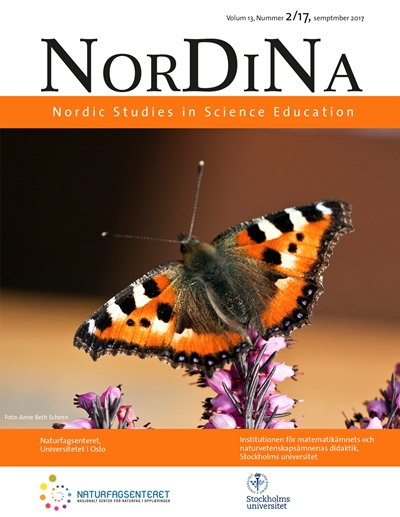Three lessons from an effect evaluation of the Swedish Science and Technology for Children Programme
DOI:
https://doi.org/10.5617/nordina.2469Keywords:
Science process, inquiry-based learning, 7-15 years, quantitative assessmentAbstract
This paper discusses three methodological aspects on evaluations of effects of teacher support programmes on students’ scholastic achievements. The three aspects are: i) participants and non-participants are, in general, not comparable, which needs to be accounted for, in order to avoid incorrect conclusions regarding the programme’s effects ii) programme effects can differ across subject fields, and iii) to enable precisely estimated effects it is essential to have access to standardized outcome measures. To illustrate the three aspects, we use the results in an earlier evaluation of the effects of the Swedish Science and Technology for Children programme (the NTA programme), on school achievements in grade 9. There, positive effects could be established only after adjusting for systematic differences between participants and non-participants. Moreover, the effects were limited to one subject, Physics, and visible only for results on nationwide tests, not for course grades set by the students’ teachers.
Downloads
Additional Files
Published
Issue
Section
License
Authors who publish with this journal agree to the following terms:- Authors retain copyright and grant the journal right of first publication with the work simultaneously licensed under a Creative Commons Attribution License that allows others to share the work with an acknowledgement of the work's authorship and initial publication in this journal.
- Authors are able to enter into separate, additional contractual arrangements for the non-exclusive distribution of the journal's published version of the work (e.g., post it to an institutional repository or publish it in a book), with an acknowledgement of its initial publication in this journal.
- Authors are permitted and encouraged to post their work online (e.g., in institutional repositories or on their website) prior to and during the submission process, as it can lead to productive exchanges, as well as earlier and greater citation of published work (See The Effect of Open Access).


